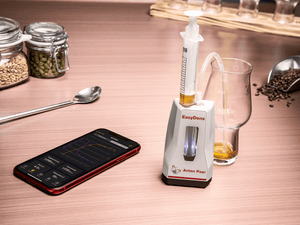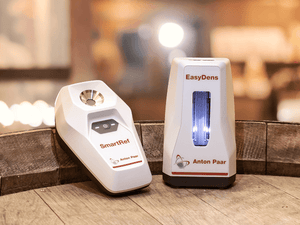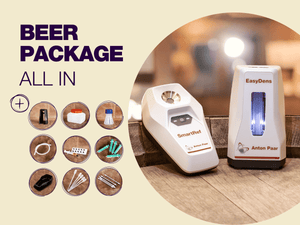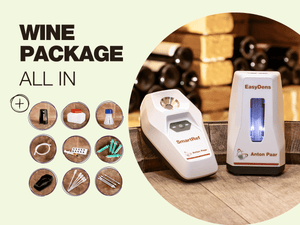Gin Production: ABV Determination with EasyDens

Do you want to try something new and let your creativity run wild? Gin suits perfectly for home distillers because it is easy to make and can be used to create a huge variety of cocktails. The key ingredient in this spirit is juniper berries which cannot be left out. Additionally, from a great list of ‘Botanicals’, you can select the ingredients to produce your favorite gin.

As soon as you know the recipe you can get started to macerate your gin.
Maceration
This is where you give your gin its distinct aroma. The botanicals are crushed first to increase the surface area available for flavor extraction and then immersed in diluted neutral alcohol. You can use high-proof neutral ethanol (96% v/v), vodka, or grain spirit as alcohol. To save time in the future stages, use the EasyDens to quickly verify the alcohol content in this step.
If you have more time you can of course use your own base spirit produced via fermentation. EasyDens helps you to track the fermentation of your gin and automatically calculate the produced alcohol content.
It's up to you how long the maceration will take. Home distillers usually allow the botanicals to develop their unique aroma for 12 to 36 hours at room temperature.
Before distillation, the ABV of the macerated gin should be around 40 to 60% v/v, depending on which botanicals you use.
Distillation
Single-shot distillation
Multi-shot distillation
Usually, a higher number of botanicals are used than with the single-shot method, to gain a gin with concentrate taste. After distillation, the gin concentrate is diluted with neutral grain spirit, the same used before distillation, and with distilled or RO water subsequently to gain the alcoholic strength you want.
Controlling distillation is a major step during spirit production to get the best out of it. The more volatile solvents, the so-called ‘heads’, should be discarded at lower temperatures. They usually make about 15% of your distillate. Ethanol, the ‘heart’, during distillation is what you want to capture. Make measurements with EasyDens during distillation to get insights into the efficiency of the distillation process and to control the strength of your drink.
You don't want to use lots of your gin concentrate for measurement purposes, especially if you produce only a few liters. EasyDens requires only 2 mL and provides the alcohol content of your gin with ATC in seconds.
For your next attempt, try using EasyDens with the Proof Meister app to make your gin production faster and smarter.





